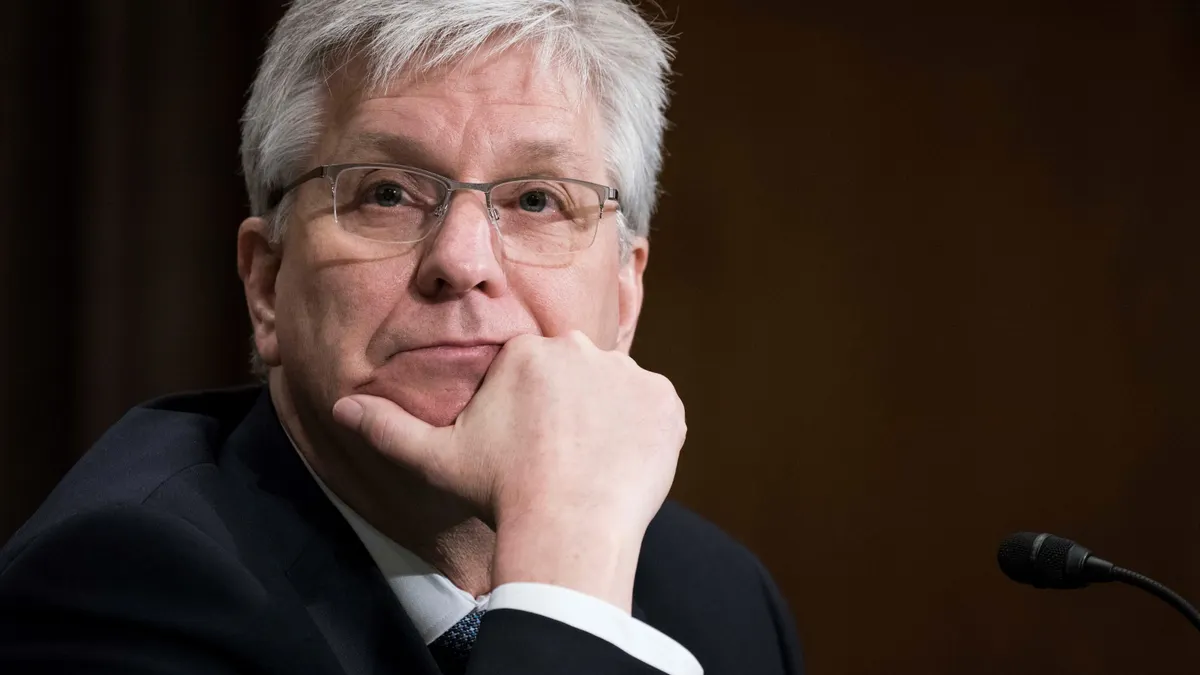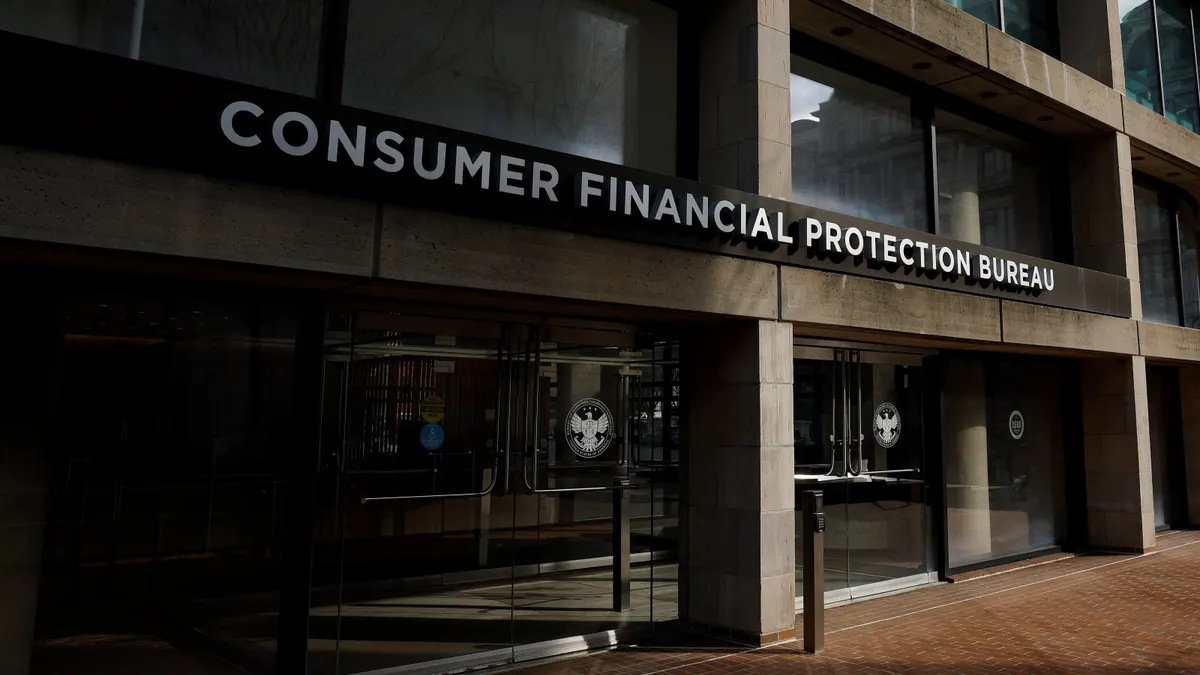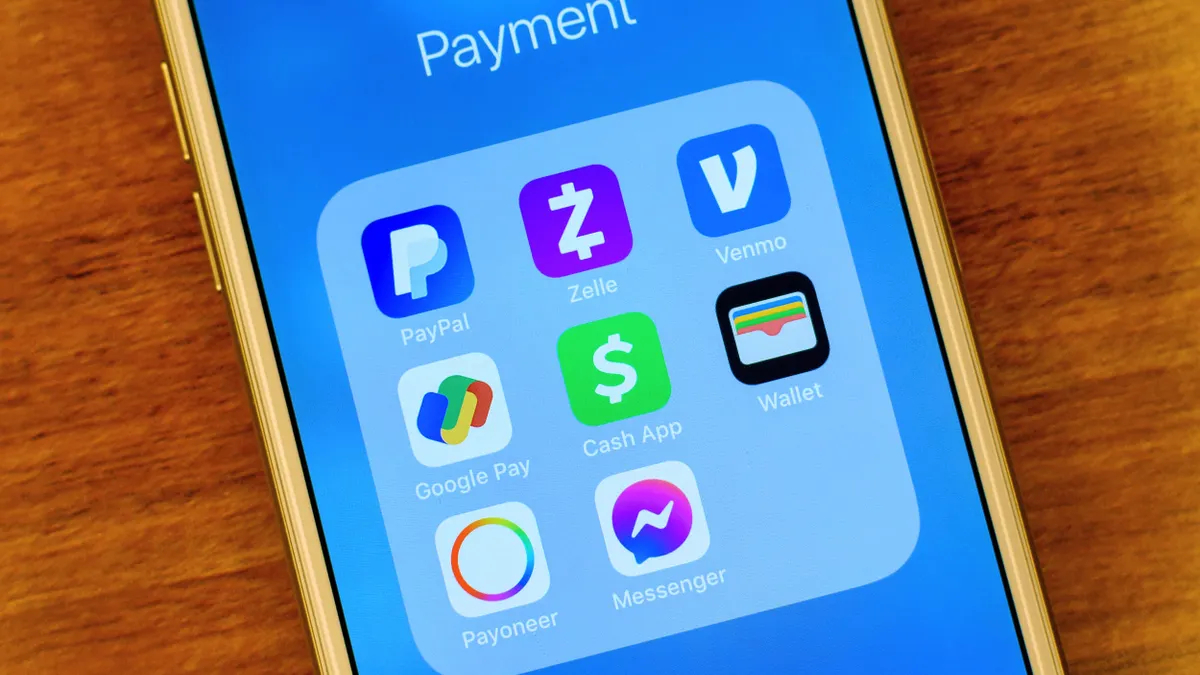Newly relaxed oversight on how banks deal in cryptocurrency has already inspired some activity between the two realms.
Brian Foster, global head of wholesale at Coinbase, said his team has been “very busy meeting demand for banks, brokers and fintechs” now that federal banking regulators have walked back on the more skeptical bank-crypto guidance put forth under the Biden administration.
“Pretty much all of the large banks in the US are now doing something [to move forward with crypto] and we're either behind the scenes with [or] live with pretty much all of them,” Foster said in an interview with Banking Dive. “Our [Request for Proposal] team is hard at work fielding all of these RFPs, so it’s definitely an all-out sprint,” Foster said.
Since January, federal bank regulators have done an about-face on crypto guidance. The Office of the Comptroller of the Currency, Federal Reserve and Federal Deposit Insurance Corp. have all withdrawn guidance that required banks to seek prior approval from regulators before dabbling in cryptocurrency. Regulators will instead monitor such activities through the normal supervisory process.
What’s changed, Foster said, isn’t banks’ intent to do something in crypto to meet customer demand. That’s “been there all along.”
“What's changing now is that the demand side has just been more pronounced as the market’s grown, coupled with the changing regulatory climate, which has just made the aperture for what's possible a little bit wider and made the risk committees feel more comfortable,” Foster said.
Brad Rustin, chair of law firm Nelson Mullins’ financial services regulatory practice in Greenville, South Carolina, said he knows that “lots and lots and lots of banks” are talking about getting in on crypto amidst the Trump administration’s regulatory shifts.
The interest is largely coming from two verticals, Rustin said: fintech-forward banks that have long had an understanding of crypto assets, and large banks that have sizable securities custodial programs.
“[The latter] are banks that did securities lending, that did margin lending, that did traditional custody services for stocks and bonds. They're saying, ‘Well, look, this is no different than custodying a stock or a bond. It’s just how you actually control it and how you maintain it that’s different,’” Rustin said.
Rustin’s firm has represented a number of banks that have tried, over time, to gain permission from regulators to explore crypto. Many of those requests went unanswered, he said, except for one: Vast Bank, which in 2021 became one of the first – if not the first – bank in the U.S. offering crypto services. Vast exited the crypto business last year following regulatory challenges.
SoFi Technologies CEO Anthony Noto credited the “fundamental shift” in the regulatory landscape when he told CNBC Tuesday of SoFi’s plans to re-enter the crypto business in the next six months – a space it exited in 2023 as a condition of receiving its bank charter.
“We’ll re-enter the business of allowing our members to invest in cryptocurrency,” Noto told CNBC. “We want to actually make a bigger, more comprehensive push into cryptocurrency [this time], to include really providing crypto or blockchain capabilities in each product area that we have.”
Digital native bank Green Dot announced a partnership with Crypto.com Wednesday, offering banking and money management tools to the crypto exchange’s U.S. customers through Arc, the bank’s embedded finance platform.
Green Dot will also soon offer an interest-bearing savings account for Crypto.com users, which will allow them to earn interest on the money funding their Crypto.com accounts before they purchase digital assets.
But Renata Caine, senior vice president of embedded finance at Green Dot, told Banking Dive that the launch closely following regulatory shifts was purely coincidental, and that the changes in guidance had no bearing on the partnership timing.
“We were part of this long before, and we work really closely with our regulators to consider and bring on new partners. It's a really good, respectful dialogue we have with them to make sure they understand our role within these relationships,” Caine said, noting Green Dot’s role is money movement, and that the partnership “provides a practical link between cash services and digital assets.”
“We're committed to maintaining that strong connection with the regulators, and I think that Crypto.com is a really good example of a partner that has a very similar discipline and rigor when it comes to compliance and regulatory,” she said.





















